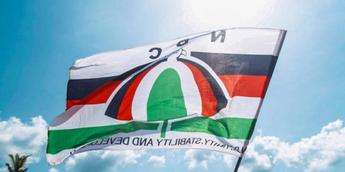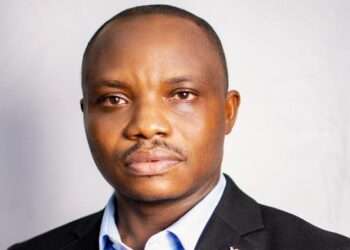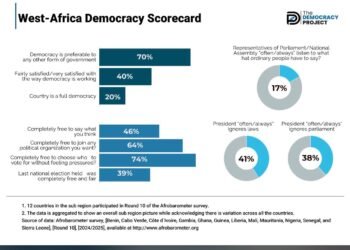The Global InfoAnalytics’ recent report projected a clear-cut Presidential victory for the National Democratic Congress (NDC) and a wholesome majority in parliament as well for the party.
The report suggested that the NDC Presidential Candidate, John Dramani Mahama is to win the 2024 Presidential election by a 53.2% vote margin while his opponent, Dr. Mahamudu Bawumia is expected to draw a 29.6% vote. The Parliamentary win for the party is projected to be a 52% vote as opposed to a 31% vote for the New Patriotic Party (NPP).
While this is good news for the NDC, the same cannot be said for the NPP considering the party’s (NPP) determination to ‘break the eight’. The report is however a projection of citizen dissatisfaction under the current government.
Accordingly, a 52% parliamentary occupation for the NDC will account for about 146 out of 275 Members of Parliament. This will make the work of the Executive arm of government easy in terms of policy-making and implementation.
Where the Executive may need a simple majority vote from Parliament to implement a policy, the party need not wait on members in the opposition to vote in favor of a bill or policy considering the norm of party loyalty in Ghana’s parliament.
In situations of a two-thirds majority vote, the Executive has less convincing to do to bring Members of Parliament from the opposition to its side as opposed to the difficulty of doing that in a hanging parliament as Ghana is experiencing now.
What all these imply is that the decision-making process will be speedy and so is the implementation stage of policies. The government will also use fewer resources in executing its policies as there will be less politicization – which is often the case in Ghana – to impede the progress of projects.
Generally, the Executive will have free will and parliament will run smoothly as the opposition is unlikely to obstruct the various agendas of the government. One will be right to say, that the NDC will have it good if the projections of the Global Info Analytic come to realization.
The Other Side: A Power-Drunk Government
The disadvantage of this situation however is to the Ghanaian public as a government that is not in check is tantamount to ‘an irresponsible child gone wayward’.
As there will barely be any avenue for proper Checks and Balances to be applied, the Executive will become overwhelmed with more power than it already relishes.
The tendency to abuse political power will be high and because the opposition will be outnumbered, the government is likely to get away with any misconduct if it wishes to. The government could become an autocratic body that refuses to put the views of the opposition and the general public into context.
Accordingly, the ordinary Ghanaian is likely to suffer if the government makes decisions or implements policies that do not favor the public. Public opinion and the constant bickering of the opposition may do little to prevent an excessively power-drunk Executive from arbitrarily making decisions that may plunge the country into a muddle.
A typical example of an overly powerful Executive in Ghana’s history is the Kwame Nkrumah regime. During his regime from 1957-1966 when Dr. Kwame Nkrumah served as the Prime Minister of the country. His government was overwhelmingly powerful and opposition was practically non-existent.
The effect this had on the country’s economic growth was enormous. Under this regime, Ghana’s resources that could have been used for internal projects were used to fund the unionization drive of Africa as Dr. Kwame Nkrumah was an unrepentant Pan-Africanist.
Away from all the internal concerns an overly powerful NDC government may cause, global matters may not be any better. The tendency to make autocratic decisions may reflect adversely on Ghana’s democratic and economic rating internationally.
The constant hullabaloo of the opposition to get the government to listen to them may lead to unrest in Ghana’s political sphere. This may create issues of security which may make Ghana a not-so-favorable place to conduct business thus, a decrease in foreign investment that the country so thrives on.
International affairs may be a replica of the J.J. Rawlings regime of 1992-2000.
All in all, while a Presidential win and a majority in Parliament may be like winning the lottery to the NDC, the potential implications this may have on the country may be dire if caution is not taken to put the government in check and to demand accountability from it.
READ ALSO: Global InfoAnalytics Report Reveals Shifts In Voter Preferences Towards NDC























